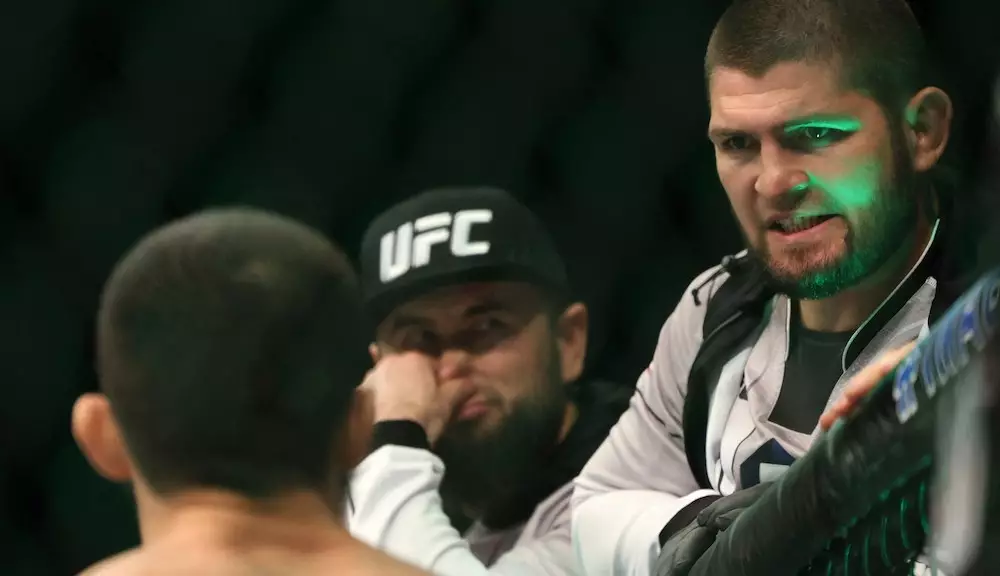Transitioning from an illustrious MMA career to the role of a head coach is no simple journey, especially for a fighter as accomplished as Khabib Nurmagomedov. The former UFC lightweight champion retired in 2020, leaving behind a storied career, only to find himself in the demanding world of coaching. Leading Team Eagle, Nurmagomedov has cultivated a lineage of fighters who are finding success; however, the switch from fighter to coach has been anything but straightforward for him. In fact, his initial perception of coaching was one rooted in misunderstanding, as he discovered that this new chapter required a depth of commitment and a type of emotional investment that is significantly different from that of a fighter’s experience inside the cage.
Khabib’s candid remarks about his struggles highlight an essential truth about coaching: it is laden with its own unique challenges. Unlike the autonomous control that comes with being a fighter—where preparation, execution, and outcomes are primarily personal—the role of a coach is markedly different. He expressed his realization that he could only provide guidance from the sidelines, a stark contrast to the active engagement of fighting. This limitation can bring a profound sense of frustration, as the coach’s influence is inherently indirect. Nurmagomedov remarked on this disconnect, describing it as “a little bit of a headache”. The emotional landscape of watching his fighters work, struggling, and succeeding while he remains a bystander creates an intricate web of feelings that both invigorate and challenge him.
Despite these challenges, Nurmagomedov feels an indelible commitment to his fighters that can be interpreted as both a duty and a passion. It isn’t a necessity driven by financial need; rather, he views it as a moral obligation. He channels the lessons he’s learned from his own rigorous training and experiences—which have been shaped by influential mentors like his father, Abdulmanap Nurmagomedov, and coach Javier Mendez. He articulates a desire to bestow this accumulated knowledge onto the next generation of fighters, hoping to shape their journeys much like his own. This desire for mentorship is both a gift to these fighters and a testament to Khabib’s character.
As he prepares his fighters for high-stakes events, including two championship bouts at UFC 311, Nurmagomedov continues to evolve in his role. The event represents a crucial milestone that embodies the hard work he has dedicated to his team. The mix of anticipation and anxiety must weigh heavily on him—much like the experiences he once faced as a competitor. Yet, he remains resolute in his commitment to nurture and refine the skills of his fighters, illustrating the paradox of coaching: a role that, while rewarding, can also be fraught with emotional turbulence. Only time will tell how Khabib embraces these challenges, but one thing is clear: his journey as a coach is poised to be just as compelling as the one he experienced as a fighter.

